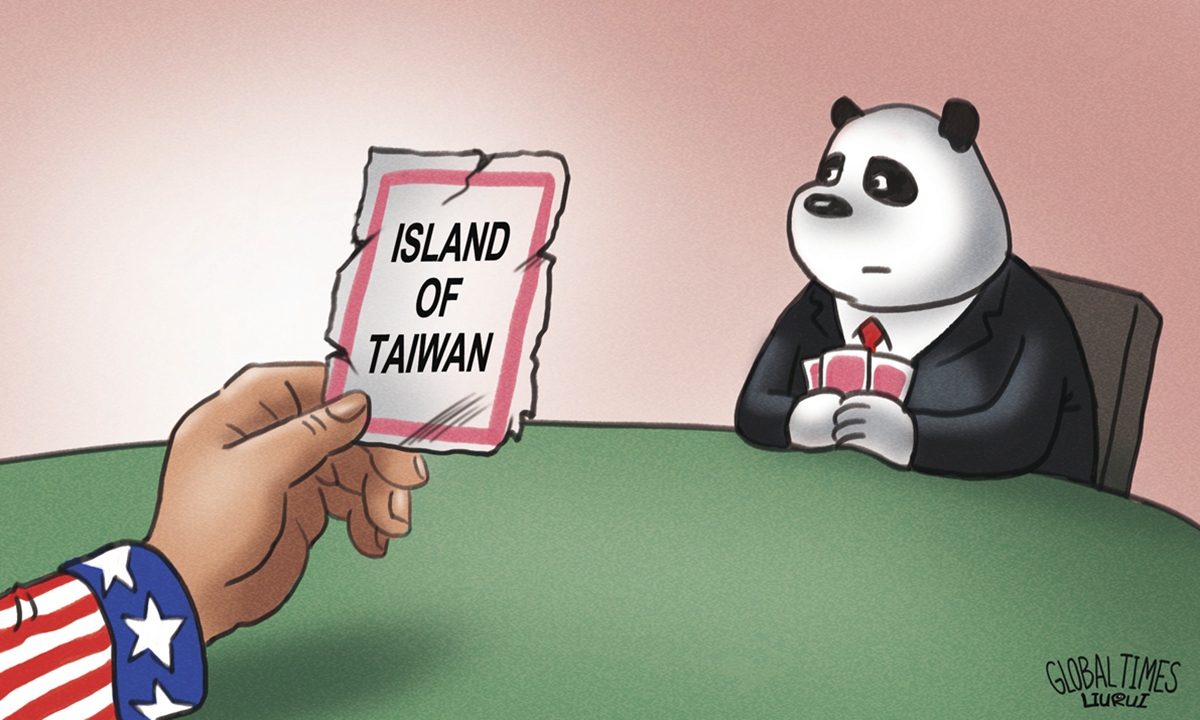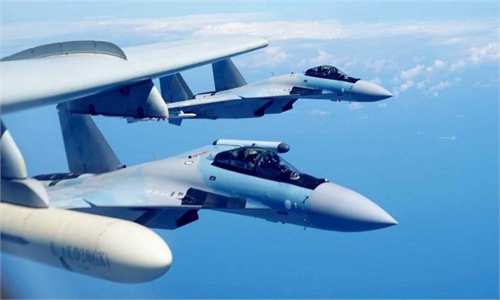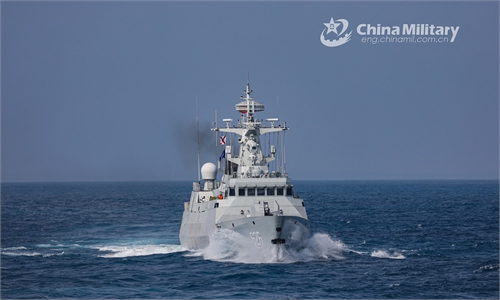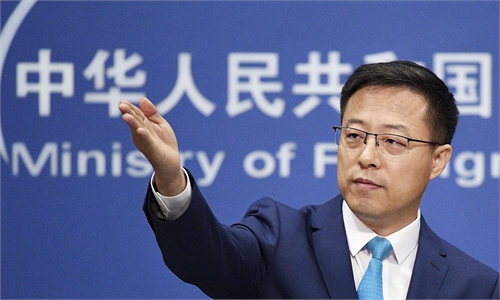US’ trade talks with Taiwan authorities ‘lack substance,’ to ‘squeeze more’ from its pawn

US, China, Taiwan island Illustration: Liu Rui/GT
Economic officials from the US and Taiwan island held their first meeting on Monday (US time) under the "US-Taiwan Initiative on 21st-Century Trade," exchanging views over "an ambitious roadmap of negotiation" to further deepen economic and trade ties.
Although Taiwan-based media said both sides agreed that the 4-hour communication was "effective and constructive" to the next stage of work, there's almost no substance that could draw attention from Chinese mainland analysts, who believe that such an initiative is motivated by political antagonism against the mainland than economic mutual benefits.
China firmly opposes all forms of official interaction between the Taiwan region and countries having diplomatic ties with China, including negotiating or concluding agreements with implications of sovereignty and of official nature, Chinese Foreign Ministry spokesperson Zhao Lijian said on Tuesday.
The spokesperson reiterated the fact that Taiwan is part of China and urged the US to abide by the one-China principle in action and stop its official exchanges with Taiwan authorities and refrain from sending any wrong signal to the "Taiwan independence" separatist forces.
According to an official statement released by the Office of the US Trade Representative (USTR), deputy US Trade Representative Sarah Bianchi met virtually with John Deng, the island's chief trade negotiator who contracted COVID-19 in Mexico and was under quarantine on Monday.
Bianchi said the initiative will "unlock market opportunities, promote innovation and create inclusive economic growth for our workers and businesses."
Taiwan's economic and trade authority told local media that the two sides exchanged views on deepening economic and trade cooperation and expect to launch the next stage of work as soon as possible.
The Office of the USTR and Taiwan authorities announced the launch of the initiative on June 1, following the island's exclusion from the US-led "Indo-Pacific Economic Framework (IPEF)" which aims at containing the Chinese mainland and dividing the region.
Wang Jianmin, a senior cross-Straits expert at Minnan Normal University, said the absence of market access and tariffs in the initiative, the two most critical issues, has greatly stamped out the substantive significance and effect of the initiative.
"It was promoted by the Biden administration without congressional authorization, which means there are uncertainties in practical field that concern Congress," Wang told the Global Times on Tuesday.
Analysts said that Taiwan authorities' nightmare during the long negotiations under the initiative may just start under the unshakable "American first" principle.
Morris Chang, the founder and former CEO of Taiwan Semiconductor Manufacturing Company (TSMC), told local media in April that TSMC was forced to set up factories in Arizona at the urging of the US government, where it did not make economic sense.
"What matters in economic and trade cooperation is whether it is mutually beneficial. A negative impact would be wielded on the cooperation if political factors are taken into major consideration," a Beijing-based expert told the Global Times.
The initiative launched by the US and Taiwan region is essentially an attempt to use Taiwan as a pawn as part of the US-led anti-China high-tech supply chain. Taiwan authorities can only cooperate with the US, so this is an unequal and even undignified negotiation for DPP and the US will keep on squeezing more out of the island, experts noted.




